
All images courtesy of Getty Images

By Andrew Daly
[email protected]
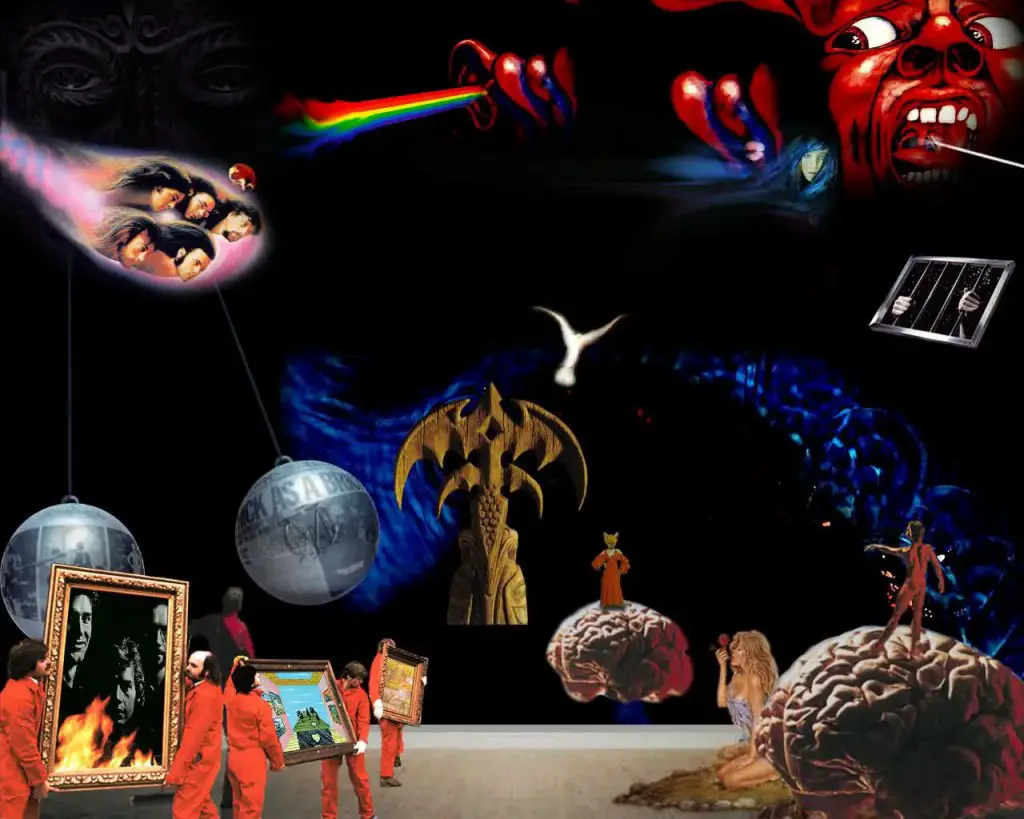
We’re back for another round of uncovering forgotten Progressive Rock gems with A Farewell To Kings: Five Underappreciated Progressive Rock Albums of the 70s & 80s Part II. The first time around we really hit the mark, but we weren’t done just yet. There are still so many legendary, near-forgotten Prog nuggets out there, and today we are serving some of them up.
Round one touched mostly on the 70s with a tinge of 80s, and so this time we’ve got a bit more of the centuries most dynamic decade peppered in for extra flavor, but not to worry, we’ve got some unexpected surprises from the 70s here too. So, without further adieu, let’s get started.

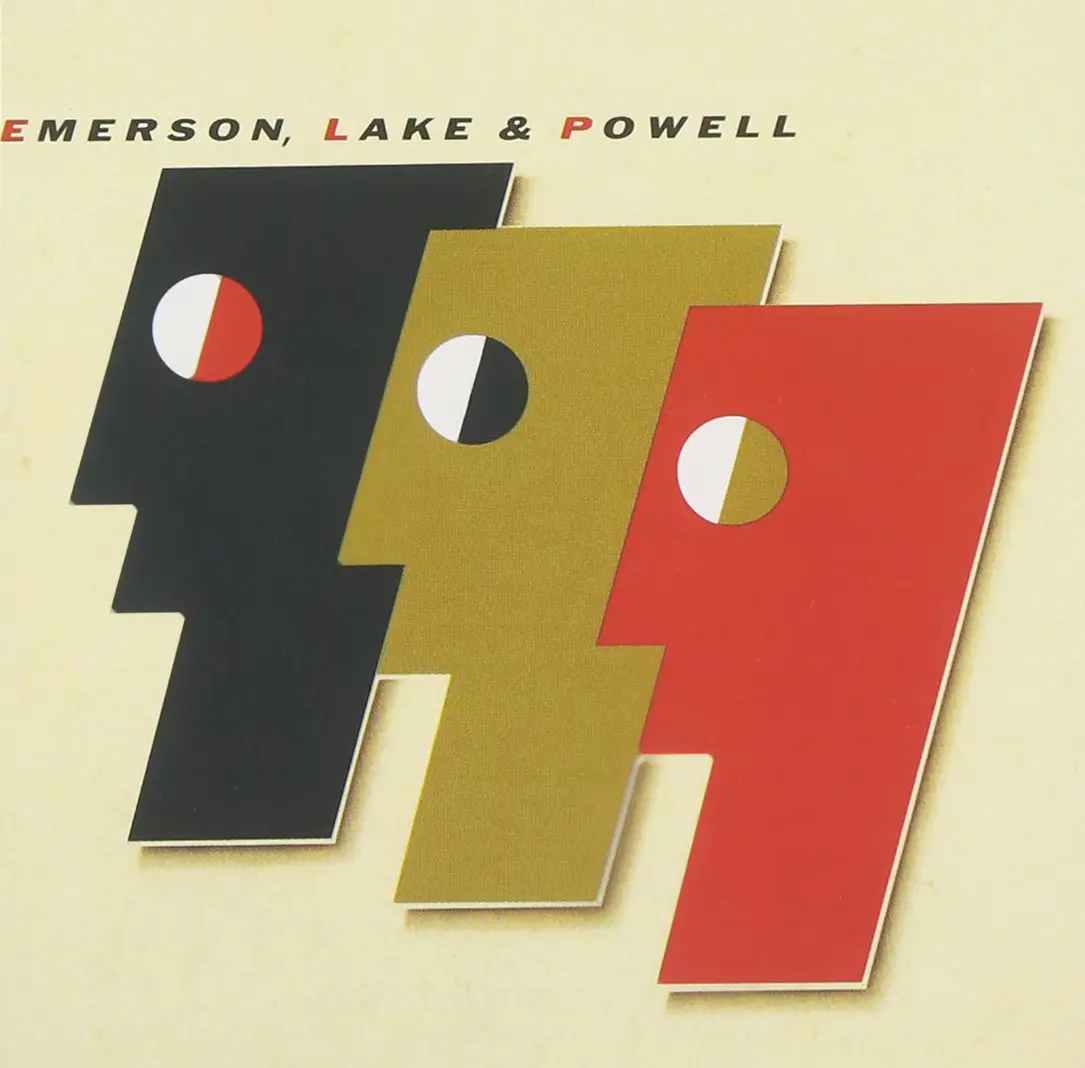 Emerson, Lake & Powell — Emerson, Lake & Powell (1986)
Emerson, Lake & Powell — Emerson, Lake & Powell (1986)
Progressive Rock is an expansive, and interesting genre and the 1980s may well have been the most…interesting time for Prog yet. In 1985, fans who had spent years yearning for an ELP reunion got their wish…sort of. Keith Emerson and Greg Lake had fully intended to reunite with original drummer, Carl Palmer, but apparently, Carl Palmer’s contractual obligations with Asia prevented the trio from fully reforming, and so, Emerson and Lake pivoted to Cozy Powell and formed something of an unintentional supergroup. Now, while Cozy Powel was extremely capable, and had his own pedigree having been a member of the Jeff Beck Group, Rainbow, Michael Schenker Group, Whitesnake, and more, he was an entirely different animal than Carl Palmer and was really more of a hard-hitting, Heavy Metal drummer, which was a far cry from ELP’s 70s Prog Rock stylings. Really, aside from allowing the group to continue on as “ELP,” this arrangement made little to no sense, and so, it was no great surprise that the new trio’s debut record, Emerson, Lake & Powell received mixed to poor reviews, was quickly forgotten, and the trio quietly disbanded. While the original ELP would later reunite in 1991, still, this spinoff version of ELP, featuring Cozy Powell is a truly cool record. Sure, it’s dated by the presence of gated reverb drums, and CORG synths, but there is a lot to love here, and there are tinges of classic 70s ELP laced throughout. Retrospectively, Emerson, Lake & Powell is just quirky and intelligent enough to have garnered status as a sleeper classic.
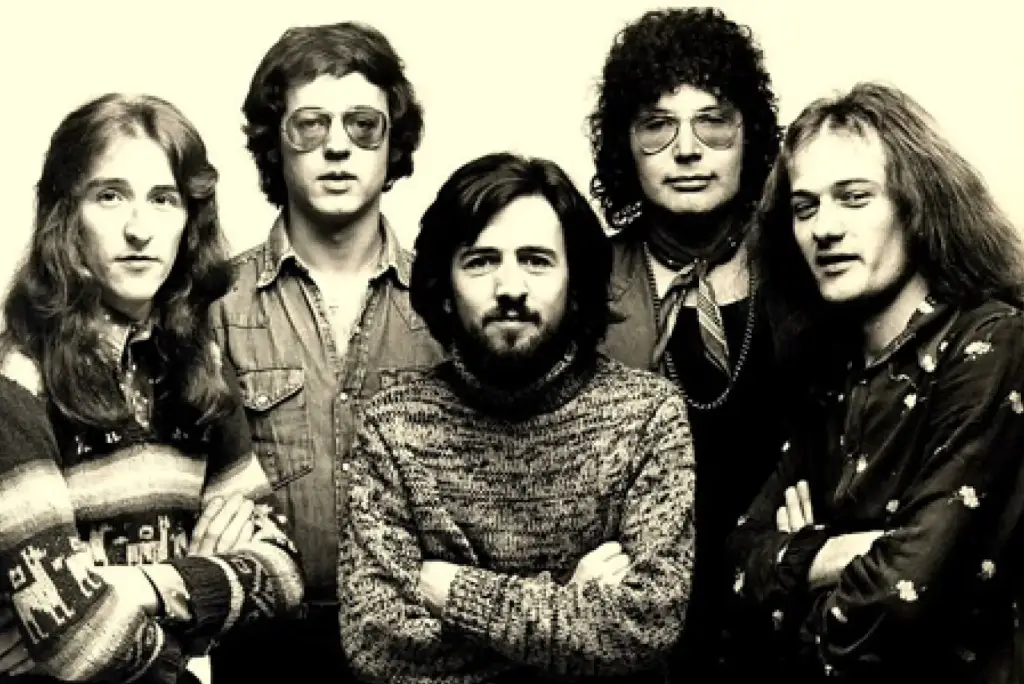
 MAN — Slow Motion (1974)
MAN — Slow Motion (1974)
Welsh Psych/Art Rock turned Progressive Rock band, MAN, was steadily gaining momentum after a string of critically acclaimed albums released in the late 60s, and early 70s. By 1974, the band seemed poised to ascend to greater success, as many of their contemporaries on the Prog scene were hitting it big. The charts were stacked with albums such as Pink Floyd’s Dark Side Of The Moon, Jethro Tull’s Aqualung, Genesis’s Selling England By The Pound, and ELP’s Brain Salad Surgery. At the time, it seemed both the UK and the US simply couldn’t get enough Progressive Rock. The members of MAN had assembled what they felt to be their strongest, and most inventive grouping of tracks yet, and as Micky Jones, Deke Leonard, Ken Whaley, and Terry Williams were set to enter the studio, fifth member, guitarist, keyboardist, and vocalist, Malcolm Morley, abruptly left the band the day before recording was set to begin. Jilted, the remaining members forged on and recorded the album as a foursome. The result was the truly underrated Slow Motion, which is the only album in MAN’s catalog to feature this lineup, as they chose not to replace Morley until later on. While the band’s previous record, Rhinos, Winos, and Lunatics, and their following album, The Welsh Connection sold in steady numbers, Slow Motion failed to even break the UK Top-40, and it did even less in US markets. Further complicating matters was that the original artwork, which was designed by Rick Griffin, who had painted the infamous MAD Magazine mascot, Alfred E. Neuman shaking a fish, was taken issue with by MAD Magazine. The result was a redesign of the album cover which focused more on the fish, and less on Neuman himself. Still, this is a fun album for fans of MAD Magazine, and Prog Rock alike. It may not have sold well in 1974, but looking back, Slow Motion is easily one of MAN’s best records.

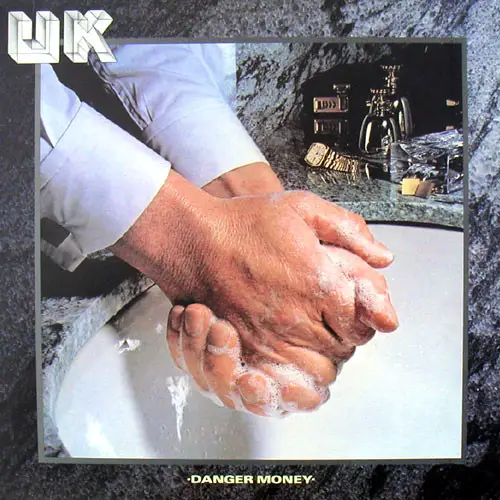 U.K. — Danger Money (1979)
U.K. — Danger Money (1979)
Isn’t funny how a “supergroup” can somehow be overlooked? Well, in the case of U.K., that is certainly the case. On paper, the band was set up for superstardom, with John Wetton (King Crimson, Roxy Music, Uriah Heep), Eddie Jobson (Roxy Music, Frank Zappa), Bill Bruford (Yes), and Allan Holdsworth (Soft Machine), it seemed that U.K. was ready to break out as the next big-time Prog Rock outfit. While the U.K.’s first record, U.K., garnered solid reviews, and middle-of-the-road sales, it didn’t explode in the way that the band’s label, E.G. Records would have hoped. And so, the band decided to retool — Bill Bruford exited and was replaced by Terry Bozzio (Frank Zappa). Also departing was Allan Holdsworth, who was not to be replaced, instead, the remaining members decided to carry on in true Prog Rock fashion and give it a go as a power trio. In 1978, the trio of Wetton, Jobson, and Bozzio entered the studio to record what would become their Prog Rock masterwork, Danger Money, which would be granted its wide release in 1979. Sadly, despite the lineup changes, some infinitely inspired songwriting, instrumentation, and production, Danger Money would suffer the same fate as U.K.’s debut and quickly fell off the charts. After briefly touring on the heels of Danger Money, U.K. would quietly disband in 1980, with brief reunions between 2011-2015. While critics and fans alike may have ignored U.K. during their initial run, retrospectively, true fans of the genre know that U.K., especially the band’s latter-day power trio lineup, was aces across the board.
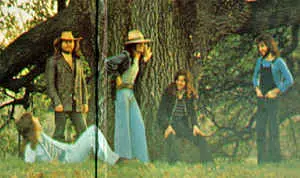
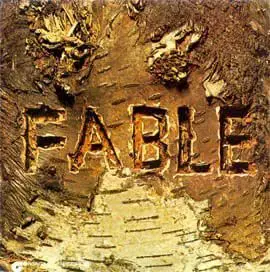 Fable — Fable (1973)
Fable — Fable (1973)
Fans of Uriah Heep will be very familiar with the band’s early 80s Abominog era, which featured Peter Goalby as the band’s lead singer, and second guitarist. What many fans of Uriah Heep, Peter Goalby, and Progressive Rock, in general, don’t know is that Peter Goalby was a member of the long-forgotten (never known?) cover band, turned Progressive Rock outfit, Fable, in the early 1970s. Not a whole lot is known regarding Fable in general aside from the fact that they had been a cover band featuring a female singer (name unknown) dating back to the late 60s. The only reason any of us are aware of fable at all is is that in the early 70s, the band asked a young Peter Goalby to join, at which point they began writing their own original material which skewed heavily toward the Prog stylings which populated the charts at that time. And so, it came to pass that the band recorded their one and only album, the self-titled record, Fable, which was released to absolutely zero fanfare, in 1973. Seriously, this album is so obscure that it does not appear on any streaming services and has never been reissued in any way, shape, or form. Still, this is a fantastic, if not obscure Progressive Rock artifact. If you want to hear it, you’ve got two options — you can scour the earth for an original vinyl copy, or, you can head to YouTube and listen to the files which have been uploaded directly from someone’s aforementioned vinyl copy. Enjoy this one. It’s the true definition of a dusty gem.
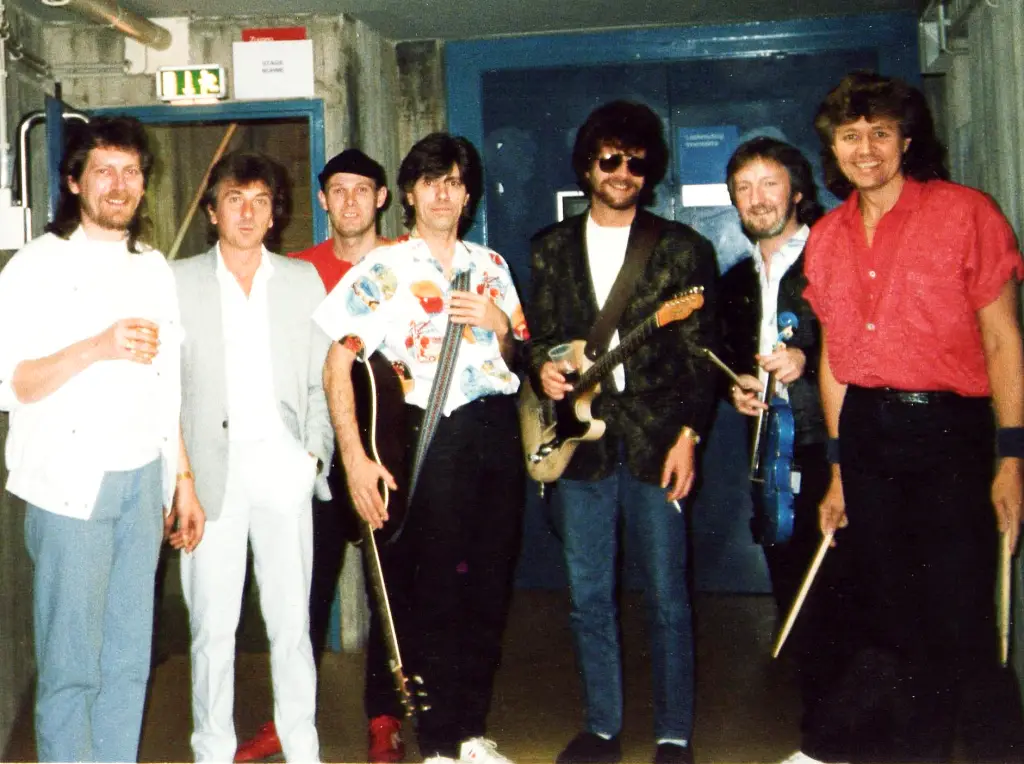
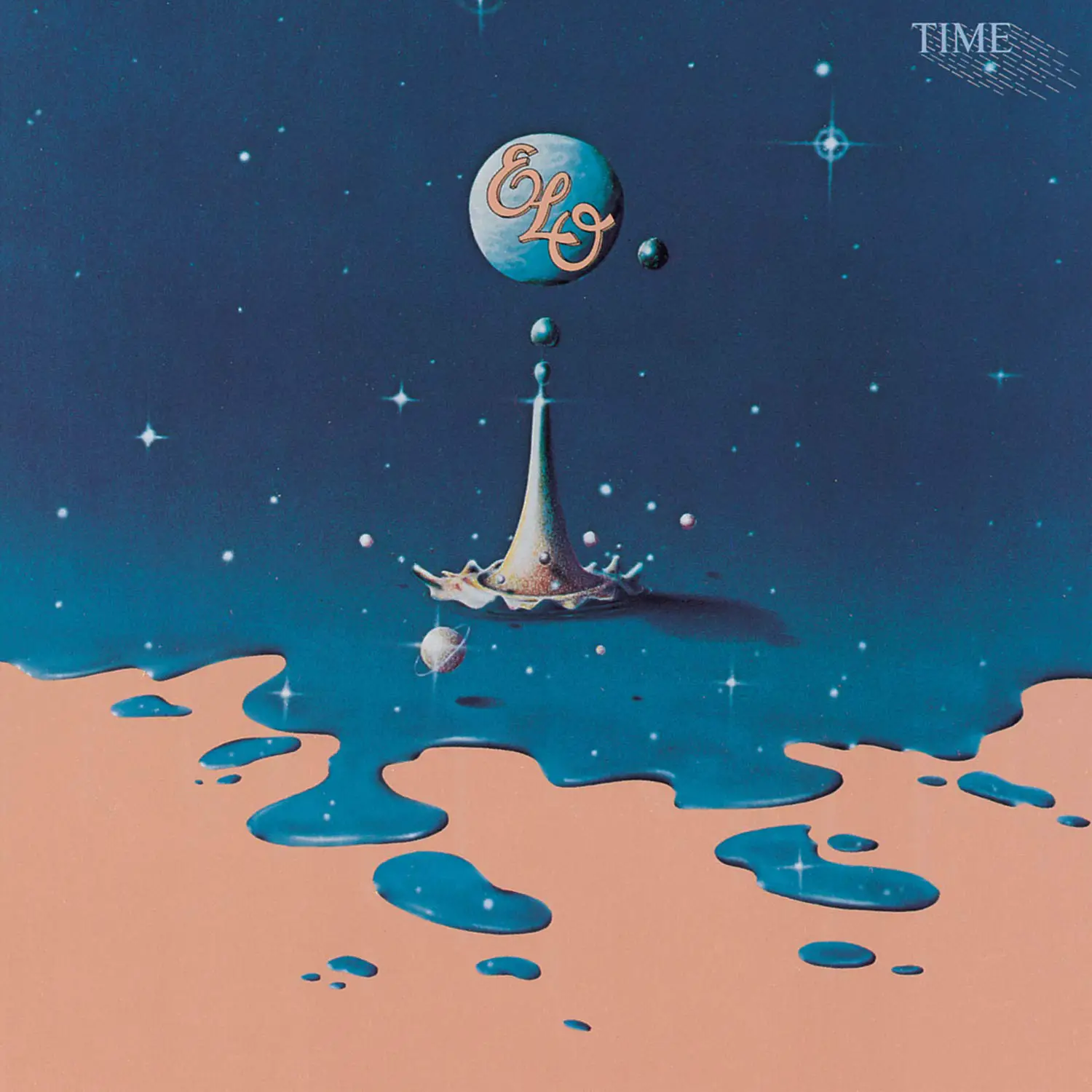 ELO — Time (1981)
ELO — Time (1981)
In 1981, ELO was flying seriously high. Jeff Lynne and company, dating back to the mid-70s, had just released a string of chart-topping Prog/Classic Rock records with an orchestral flair. Never one to stagnate, Jeff Lynne decided to change direction and write a concept album about a man from the 1980s who was taken to the year 2095 where he is directly confronted by the dichotomy which exists between technology and human connection. If you think that sounds confusing on paper, you’d be right, and most fans of the time agreed because this album didn’t sell nearly as well as ELO’s previous efforts had. Sales were sluggish, and reviews were mixed, with a general confusion being the consensus as fans and critics failed to graph the mixing of heavy synths with New Wave, Reggae, and 50s Pop music stylings. With all this being said, the album did end up garnering one of ELO’s most well-known tracks in “Hold On Tight,” which was no surprise as it was basically the only track on Time that sounds like a traditional ELO track. The eventual popularity of “Hold On Tight” was well-timed as the music video created for the track was the most expensive ever made to that point, with a bizarre budget of approximately $40,000, which for the time, was a boatload. While ELO had ventured successfully into concept record territory before with 1974’s Eldorado, it could be said that a massive stylistic shift in the form of a record about duality and time travel might have been a misstep. As they say though, time heals all wounds, and in the case of ELO’s 1981 folly, a steady cult following had developed for Time, and tracks such as “From The End Of The World,” “The Lights Go Down,” “Here Is The News,” and” “Twilight” are standouts by ELO in any time or place. The world may not have understood Time upon its release, but its influence and trendsetting stylings make it perhaps ELO’s most influential, and singular record of the band’s entire career. Hot take — Time is the mighty ELO’s best record. Period.
So, that puts a pin in round two of this bout of Prog-Rockery. Hopefully, after all of this, you’ve got a few new albums to dig into going forward. If you’re new to Progressive Rock, then while these aren’t the most traditional of places to start, you’ve certainly got a leg up on the competition. Yes, I am sure you’ll be well-armed in any game of Prog Rock theme Trivial Pursuit.
In all seriousness, the general hope here is to not only expose you all to new music but to further educate you all on Rock music’s perhaps most misunderstood genre. Too often Progressive Rock is thought of as “nerdy,” “overcomplicated,” or “self-indulgent,” but maybe it’s time that we flip the script, and see Prog Rock as the inventive, nuanced, brain-bending, mind-opening, soul-scraping genre that it really is.
Now, while any self-respecting Devil’s Advocate could make a heady case for all of those things being true, at the end of the day, music is about taste. Sure, I love Cock Rock, and Hair Metal as much as the next person, but I love a hearty dose of Prog Rock too. In fact — make it a double.

Check out part one of this series, Close to the Edge: Five Underappreciated Progressive Rock Albums of the 70s & 80s, here: https://vwmusicrocks.com/close-to-the-edge-five-underappreciated-progressive-rock-albums-of-the-70s-80s/
– Andrew Daly (@vwmusicrocks) is the Editor-in-Chief for www.vwmusicrocks.com and may be reached at [email protected]
